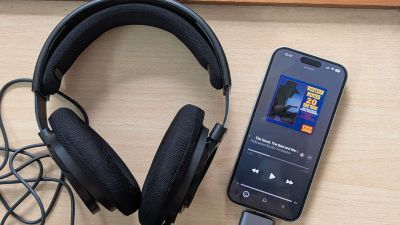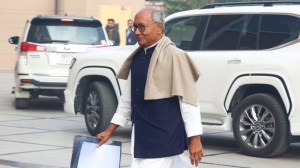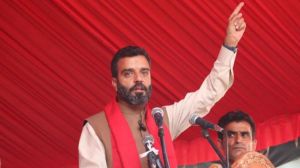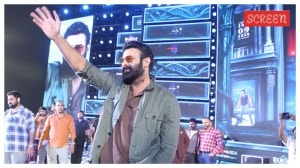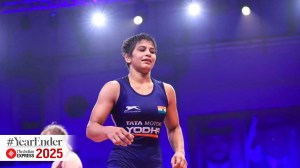Calm amid clutter
The minimalist workspace of painter Shobha Broota doubles as a classical concert venue.

The minimalist workspace of painter Shobha Broota doubles as a classical concert venue.
Shobha broota8217;s studio, tucked away in the basement of her bungalow in Delhi8217;s plush Soami Nagar colony, is a bundle of contradictions. It is as rugged as a village hut and as serene as a prayer room. The large, pillared room is minimalist to the core8212;there8217;s no plaster on the bare walls and the furniture8217;s limited to a few cane chairs, tables and wooden cabinets. This austerity, says the painter, defines the studio and also lets it 8220;breathe8221;.
Some frames and canvasses8212;which carelessly hang on the walls8212;are unused. Broota, too, is just as unbothered to remember her previous works. She doesn8217;t recall, for instance, the name of the South Korean president whose portrait she made 20 years ago and which is now displayed in a worn-out frame fixed on the wall. But she does tell us that a copy of the painting was sent to Korea, while this one was used by a South Korean bank in Delhi before it shut shop.
Sculptures, most of them made by Broota8217;s son-in-law Arun Kumar, artifacts and the usual painting paraphernalia sprawl around though one can also spot piles of wool, old cloth and plastic mesh8212;a spatial manifestation of the artist8217;s experimentalism with varied mediums.
The room8217;s modesty is interrupted by the striking presence of a sitar. 8220;This space also hosts my small classical concerts,8221; says the 60-something Broota who is also a trained classical vocalist.
Adding further novelty to the space is a rack of books sitting coyly in one corner. It is actually a stack of used bricks, done up with old wooden strips and frames. 8220;I didn8217;t want to add more fixtures, so I did this shelf by myself,8221; says Broota, whose collection of books include those on art history, music, biographies and Osho.
As she sits comfortably in her chair, she looks at the watch and gets up all of a sudden. 8220;Time for the painting class,8221; she exclaims. As half-a-dozen students walk in, the silence of the room is broken by a fresh whiff of enthusiasm. copy;
- 01
- 02
- 03
- 04
- 05


